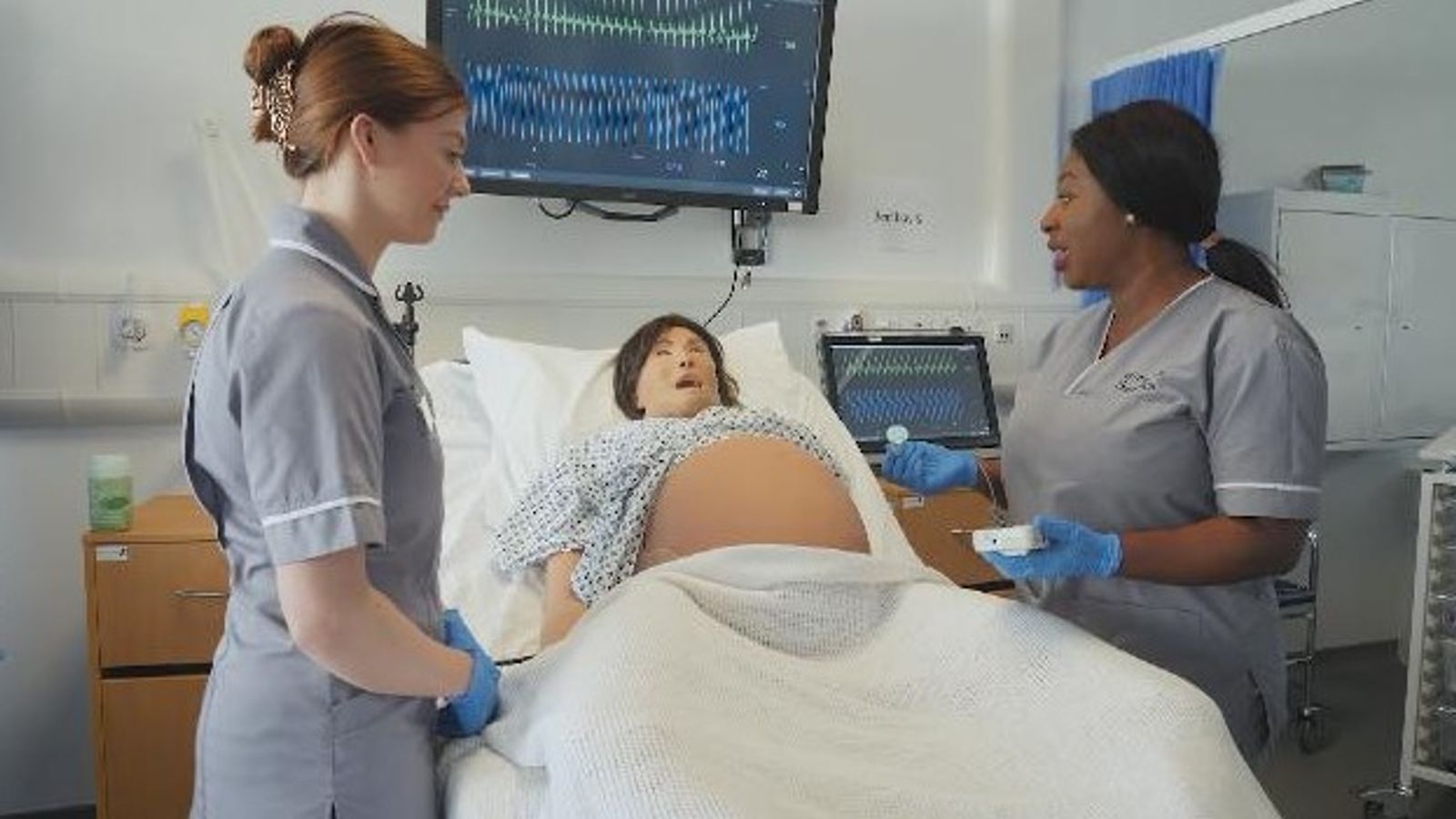Belinda Nichol and Rita Aridity speak to their patient in a calm and reassuring but firm way.
They are about to deliver a baby and show no signs of stress.
Within minutes the newborn is delivered and given over to mum to hold.
Then it’s time to check their notes: did they follow correct procedure? Was the baby delivered safely and was the mother’s safety ever compromised?
Satisfied they did everything by the book, they reinsert the baby into the mother’s womb and reset all the state-of-the-art instrumentation.
Then they swap bedsides so they can practice a different role. And start again.
Belinda and Rita are student midwives in their final year of studies.
The maternity ward is not in a hospital but is a classroom on the campus of Greenwich University where the next generation of health workers is being prepared.
The NHS winter crisis, the six months of strikes and even the pandemic has not put either women off from joining the NHS.
They will be joining a health service that is under pressure and under-staffed with over 110,000 NHS job vacancies.
Belinda thinks the solution is to encourage more students like her: “This is when we need to look to the government to increase apprenticeship opportunities and to increase the opportunity for people to train and join the NHS.”
Rita agrees: “I would say to anyone who wants to work for the NHS, definitely, there will be challenges – there are challenges in every walk of life, but it’s very rewarding.”
Please use Chrome browser for a more accessible video player
The government’s long-awaited 15-year NHS workforce plan is expected to double medical school and nursing training places.
The workforce crisis has put a struggling health service under severe pressure and the waiting list has grown even longer following eight months of consecutive strikes over pay that have resulted in more than 650,000 routine operations and appointments being cancelled.
Read more:
Record NHS sickness in England with mental health biggest issue
Thousands of NHS contractors could be denied pay increase
NHS trailing behind other major nations on life expectancy, study finds
Be the first to get Breaking News
Install the Sky News app for free
Sue Seers, a retired engineer from Kent, has had her potentially life-saving operation cancelled eight times this year.
“I was basically told that I’d have a few months to live and that was six months ago”, she told Sky News.
Until she has the operation, Sue lives with the risk of suffering a stroke.
She has been told her surgery is hard to schedule as it would need to involve four separate surgeons – two heart and two brain specialists.
She has been warned that there is a 25% risk of dying during the procedure.
‘There’s a timebomb inside of me’
But for Sue that the risk is worth it.
Every day she sits next to the phone wishing for it to ring with news of an appointment.
She told Sky News: “There’s this time bomb inside of me. It’s frustrating because my life’s been on hold for six months, can’t go anywhere, do anything.
Please use Chrome browser for a more accessible video player
“And at any moment, I could fall on the floor. And as there is a lifeline and opportunity of an operation, it’s very frustrating.”
An ageing population suffering from more complex illnesses will need a reliable, modern and well-staffed health service with recruits like Belinda Nichol and Rita Aridity.
That will go some way to stop patients like Sue Seers from enduring agonisingly long waits.








